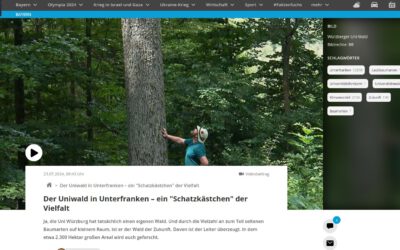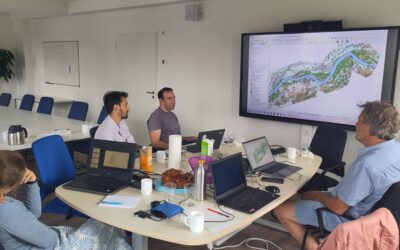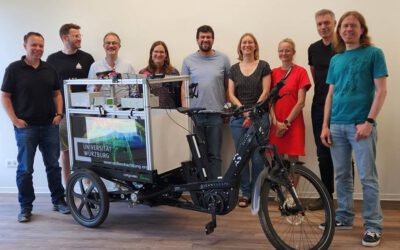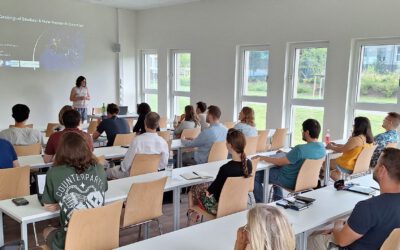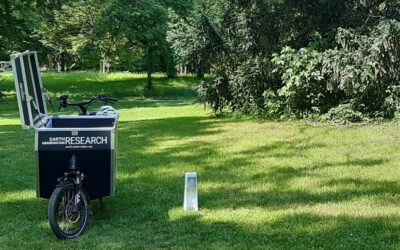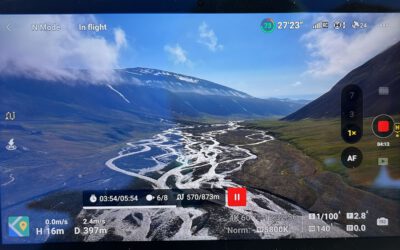Begin of March 2018, colleagues from the Department of Remote Sensing at the University of Würzburg and their colleagues from the German-Kazakh University in Almaty (Kazakhstan) set up the roadmap for disseminating the online information tool WUEMoCA in the final CAWa phase (2018-2019).
The meeting in Almaty particularly dealt with
- the current state of WUEMoCA and ongoing tool development activities,
- recent WUEMoCA dissemination activities in Central Asia such as seminars for knowledge transfer and trainings for sustainably bringing the tool into the practice,
- feedback by users/applicants in order to improve WUEMoCA, and
- future cooperation.
Among others, colleagues from the Department of Remote Sensing met and discussed potential tool applications with the Institute of Geography in Almaty, the GeoFaculty ate Kazakh National University, the National Kazakh Centre for Space and Research Technology, and with Agrohub at the Kazakh National Agrarian University.
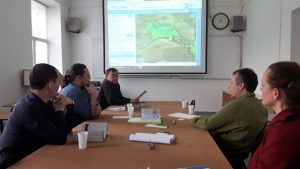
Introducing into the applications possibilities of the online information tool WUEMoCA (here to staff members from the National Centre for Space and Research Technology) in Almaty. Picture taken by A. Kitapbayev (March 2018)



